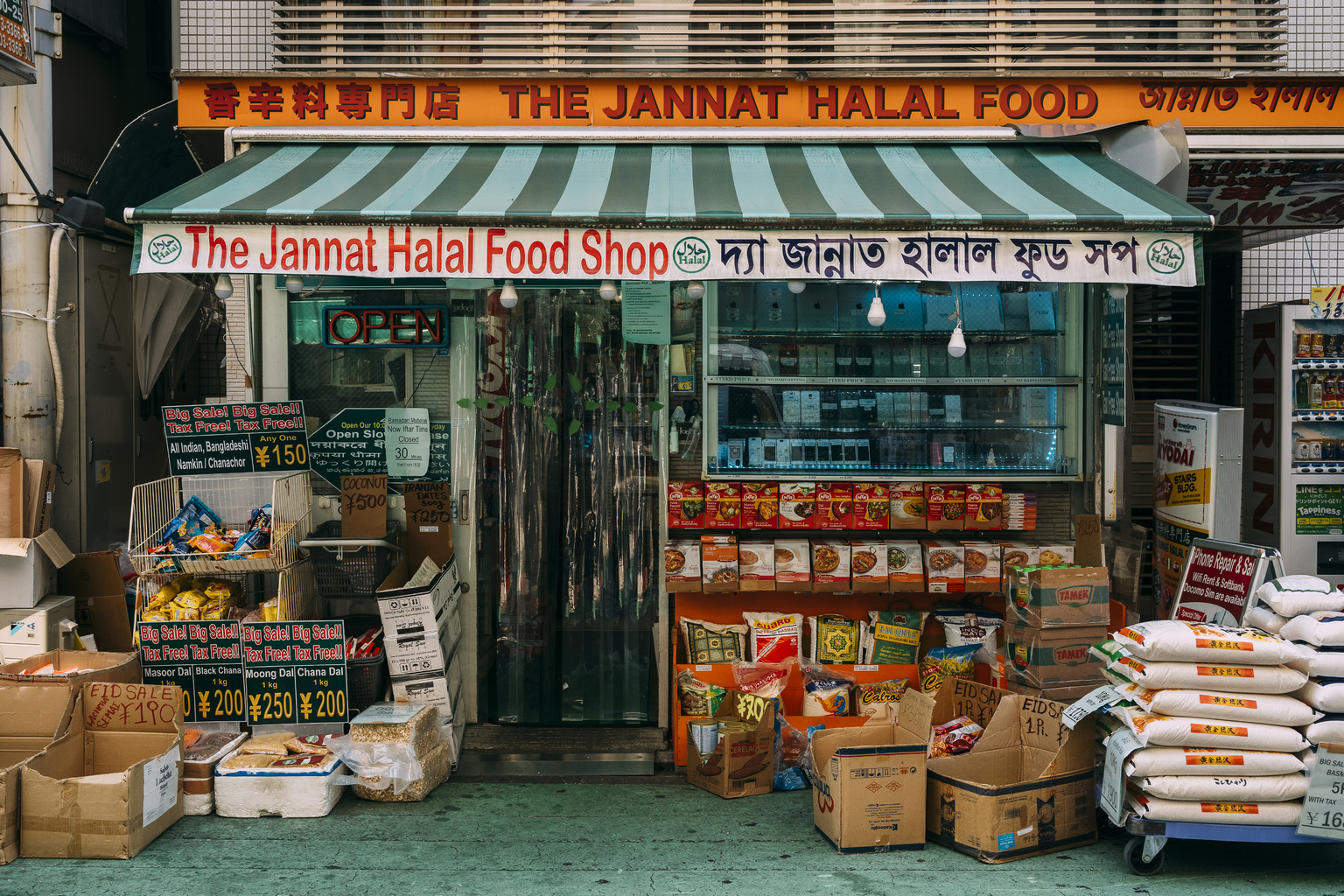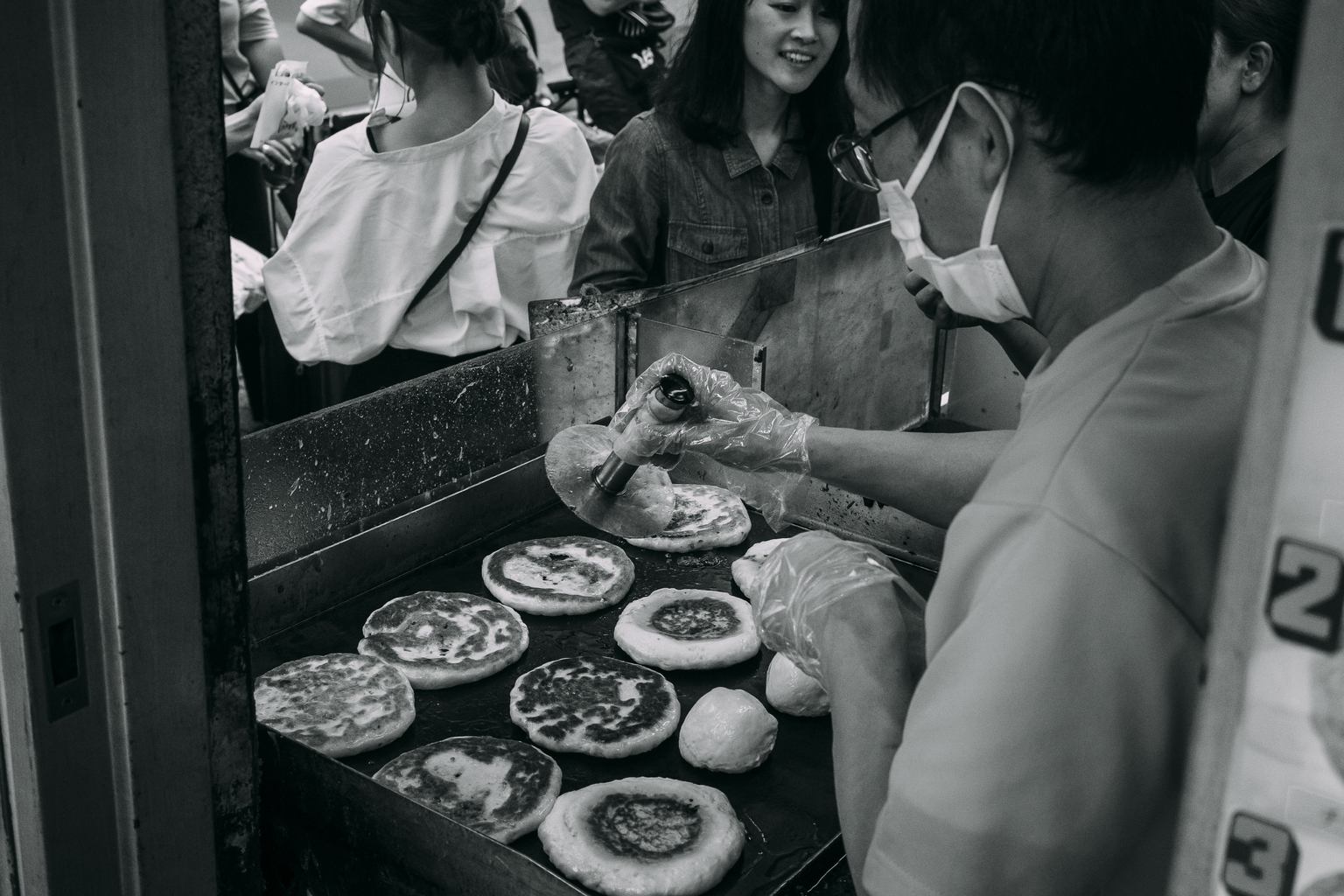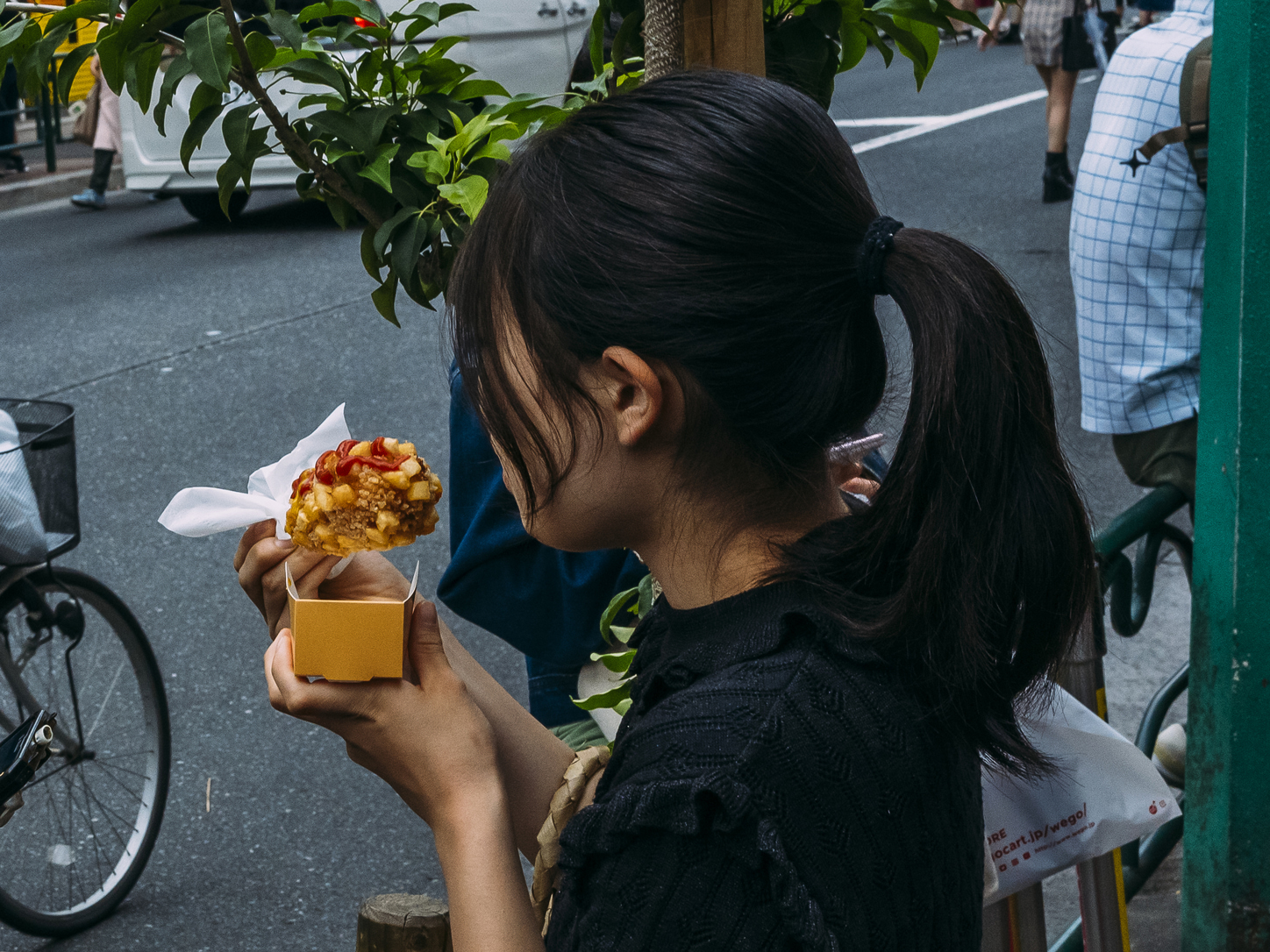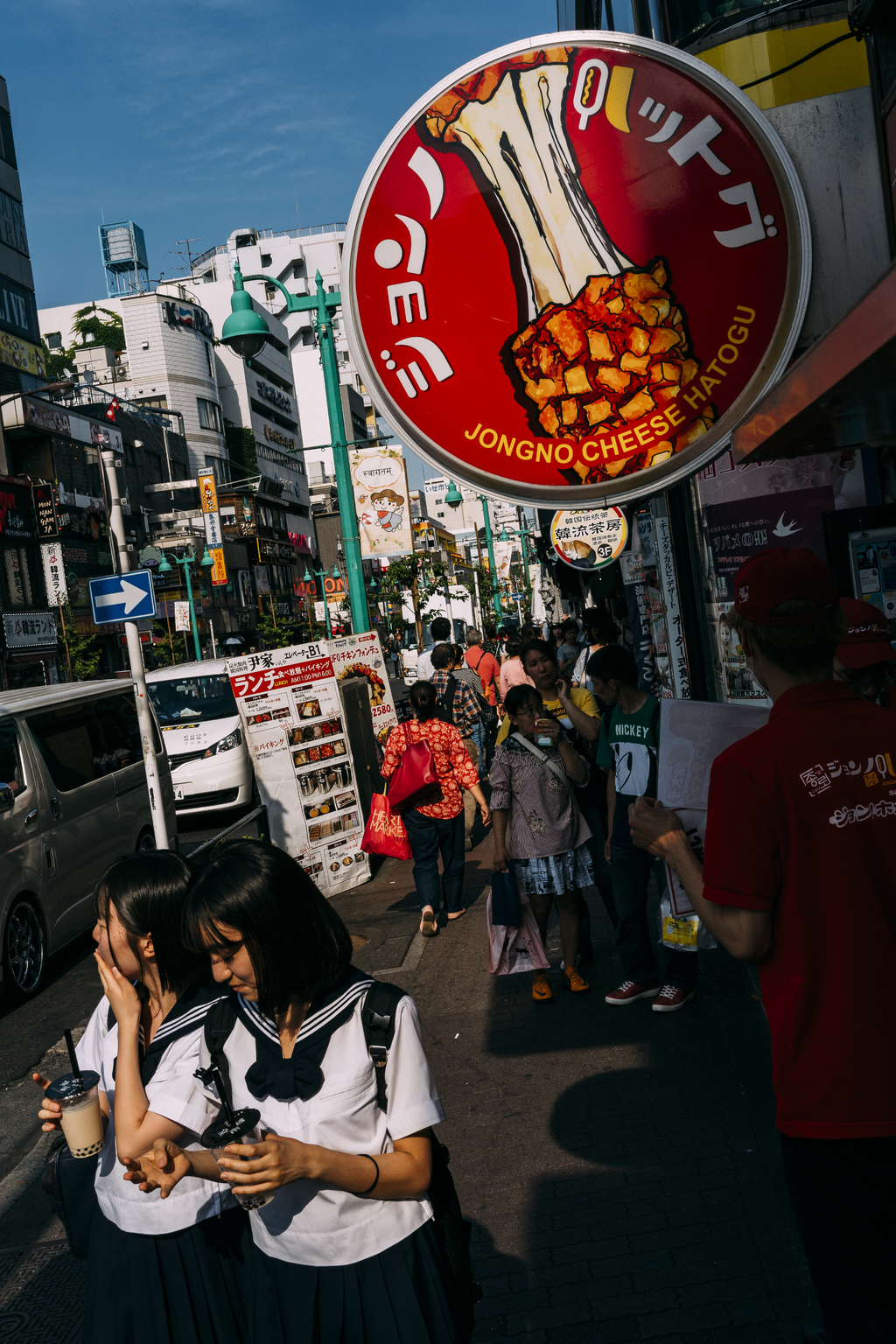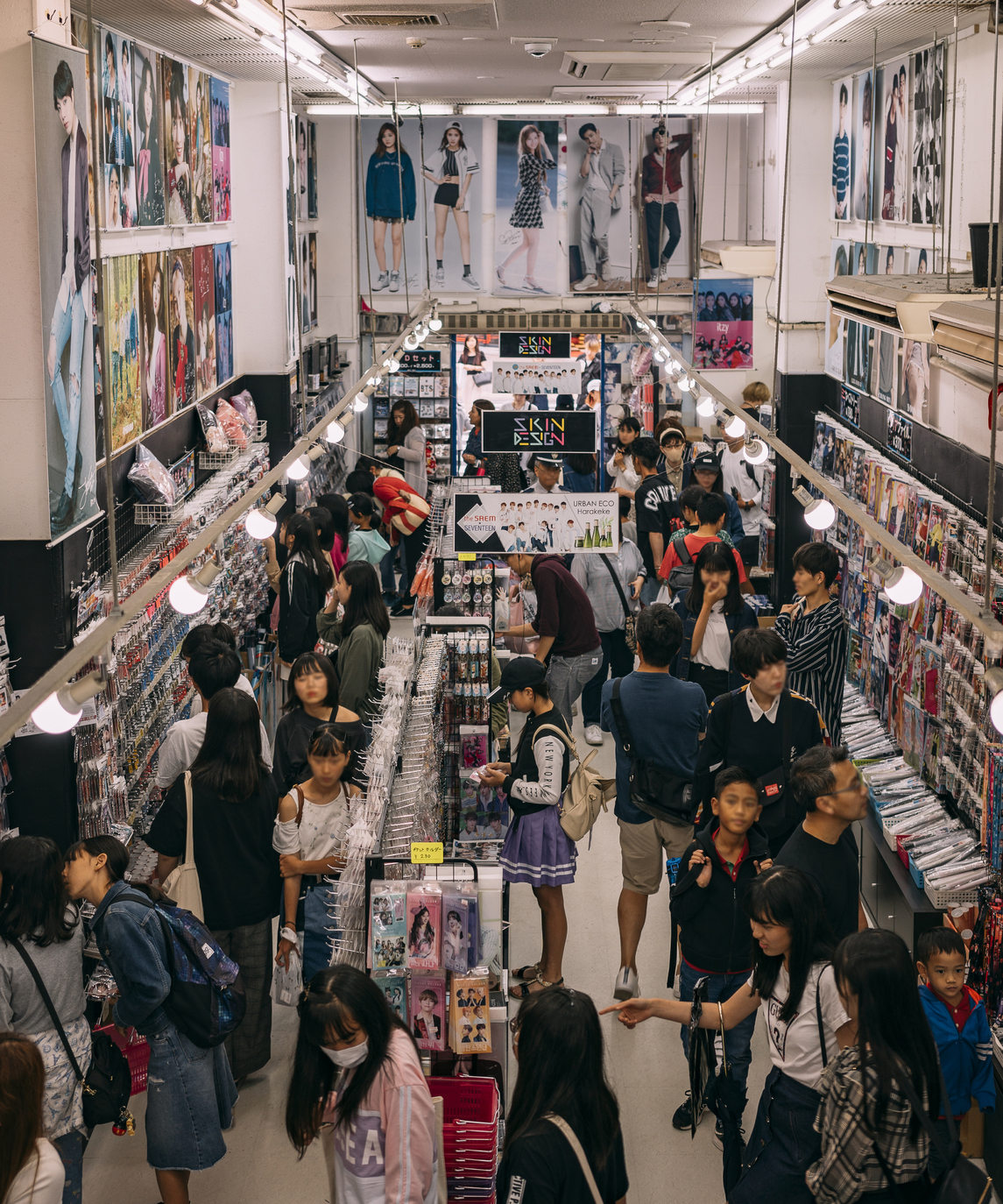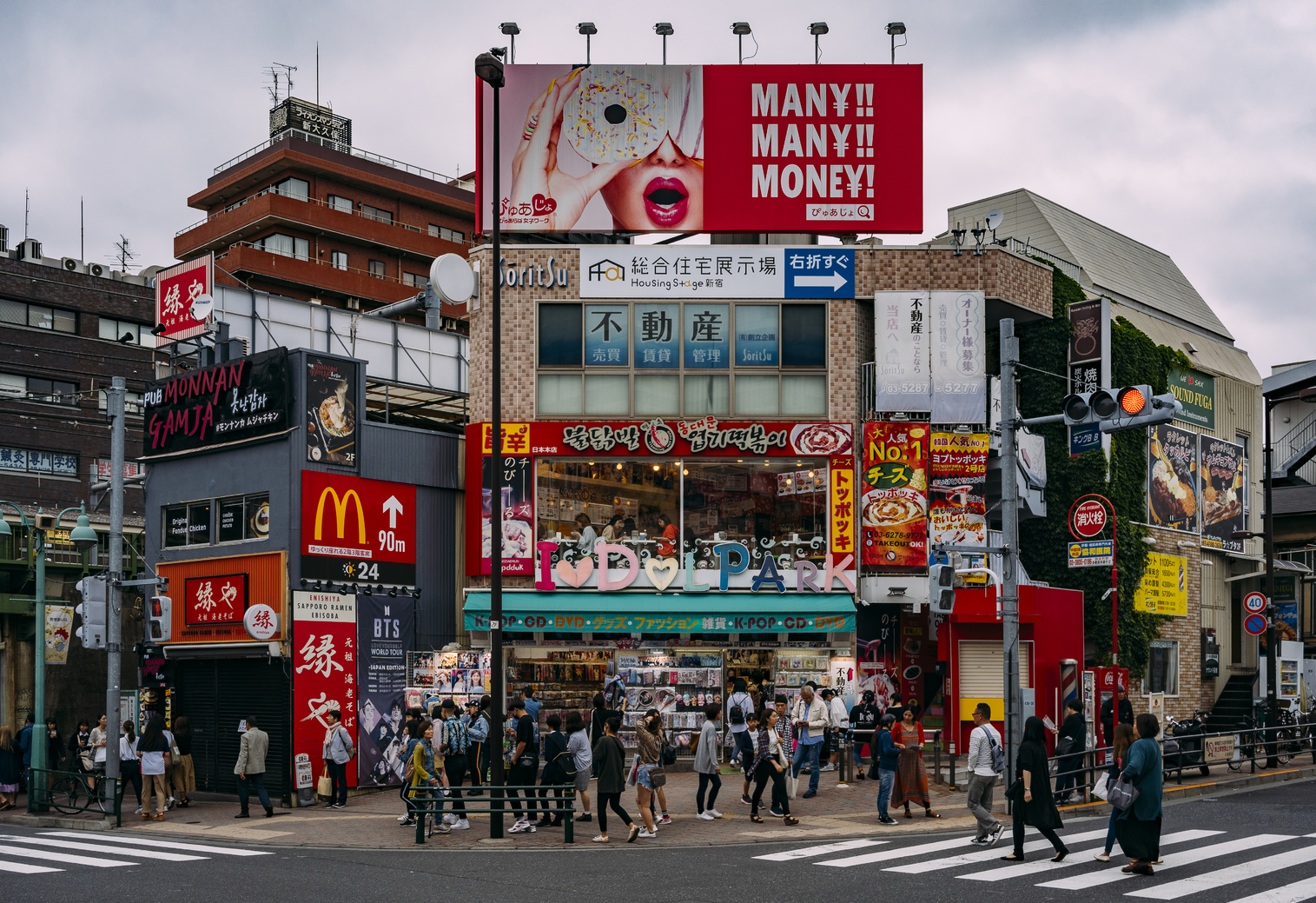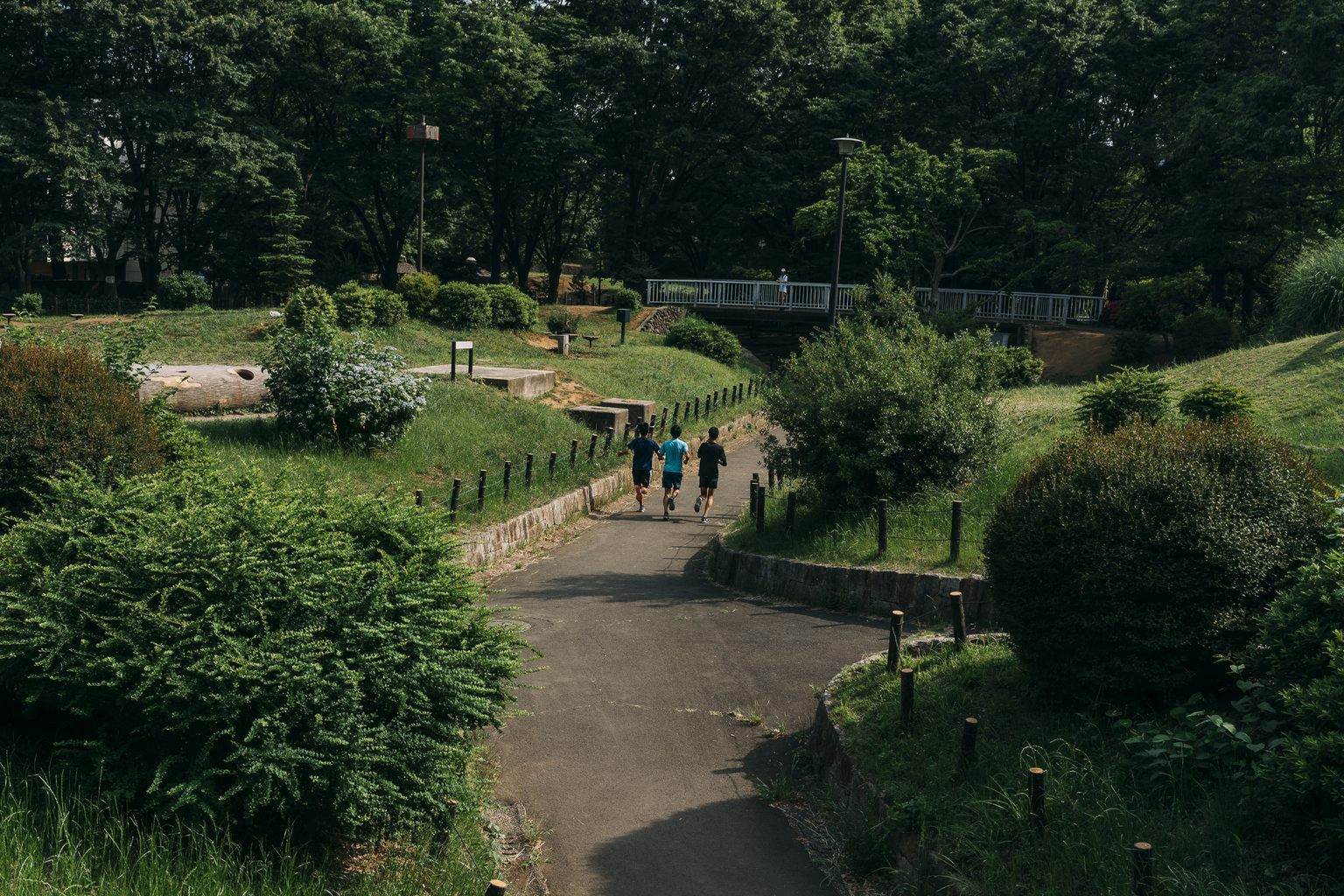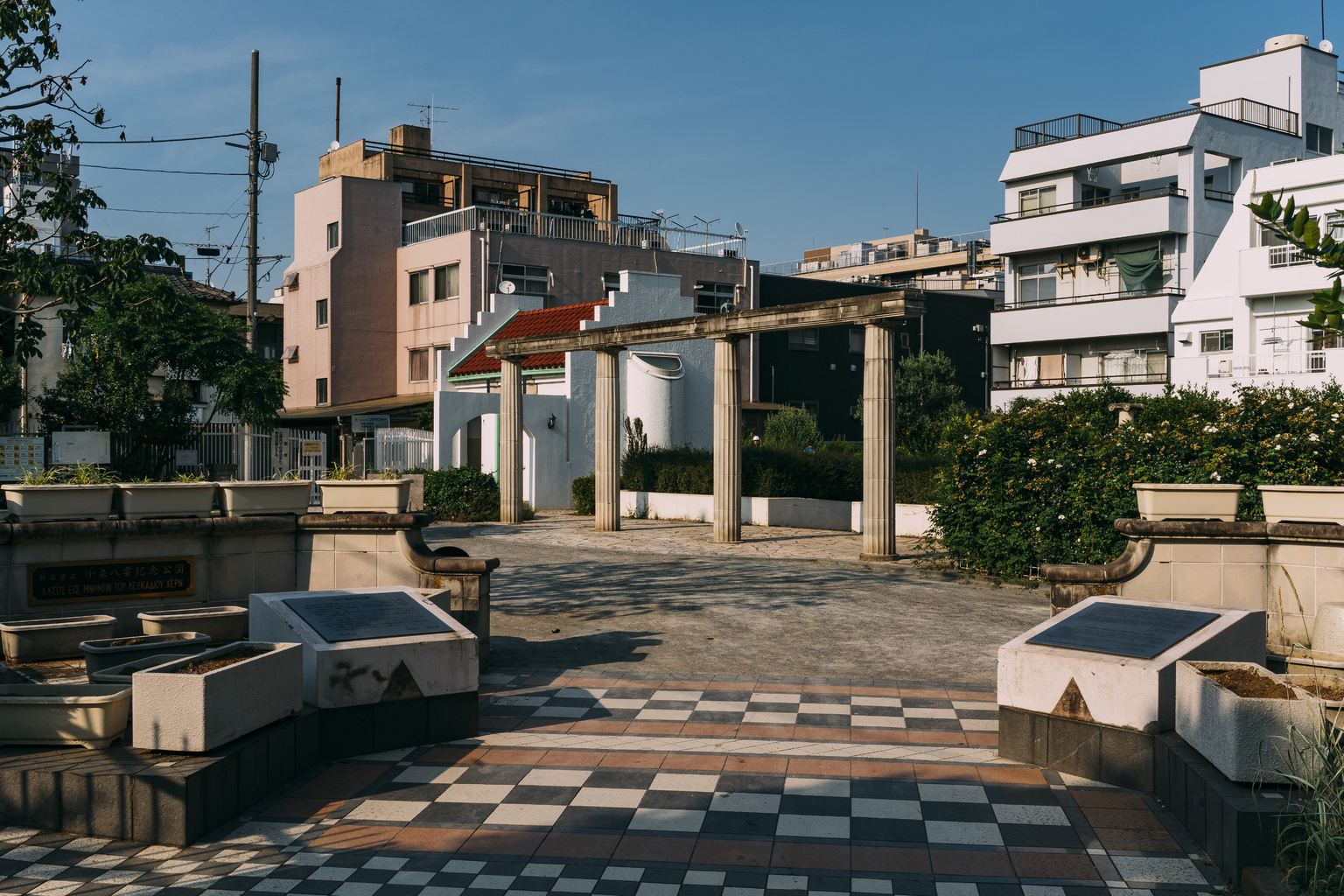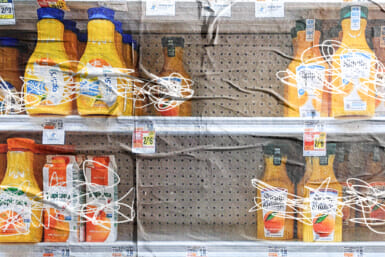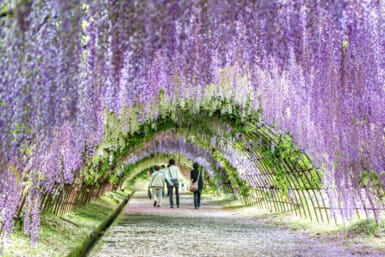The go-to neighborhood for all things Korean has seen another surge in popularity recently, but there is more to discover than just K-Pop and corn dogs.
Street Eats
A key ingredient of the recent Korean boom has been down to the food which, along with old favorites such as samgyeopsal (Korean-style pork belly BBQ) and bibimbap, has infectiously spread across social media thanks to the looks – and of course, the taste – of a new wave of imports from the homeland. Expect to see crowds of kids queuing up for mouthwatering cheesy Korean-style corn dogs, hotteok (Korean-style pancakes) and bingsu (Korean-style shaved ice). Taiwanese bubble tea is also ubiquitous. For a more substantial meal there are a myriad of belly-filling options up and down the high street and back alleys. Tuck into cheese dak galbi (diced, spicy marinated chicken and melted cheese) – a recent hit amongst foodies – at places like Shijan Dakgalbi or join the locals over at Shin-Chan and get stuck into yangnyeom chicken (fried chicken smothered in a sweet and spicy sauce).
K-Pop and Cosmetics
With K-Pop in vogue, you’ve got the perfect soundtrack for the area – and it blasts out of almost every shop and restaurant. Fans can also experience live K-Pop performances in intimate settings. Show Box hosts up-and-coming Korean acts and local idol groups but if your musical tastes are more on the edgy side then check out Earthdom, a mecca for Tokyo’s punk and hardcore fans. A plethora of K-Pop goods, ranging from stickers, keychains and jumbo-sized photos of current talent can be found in dedicated stores such as Feel Korea and Star Shop. Idol Park is a particular standout thanks to its second-floor café that overlooks the main high-street junction. Korean cosmetics are another big draw and top of the shop list is Myung Dong Cosme Shop and its eclectic range of products to keep you looking trim and fresh-faced. Other stalwarts worth checking out are Skin Garden and Skin Holic. Don’t ignore Don Quixote either; the behemoth megastore has a dominant and specialized presence in the area, offering great deals and discounts on many Korean products and groceries.
Haunted Hills
Take a bit of time out with a stroll around Toyama Park. Split down the middle by Meiji-dori, the Okubo side is connected to Shinjuku Sports Center and serves as an active meeting ground for club members from nearby Waseda University. On a darker note, the old Imperial army used to operate a medical school nearby, with rumored ties to the infamous Unit 731 during WWII which conducted lethal experiments on its patients/prisoners. This dark past has led to supposed ghostly goings on in the park at night such as the eerie sound of a weeping man and spooky apparitions. Also worth checking out is the Koizumi Yakumo Memorial Park. The small but tranquil urban space reflects the Greek roots of prominent thinker and writer Lafcadio Hearn (aka Koizumi Yakumo) with its stone columns, fountain and surrounding flower beds. The public toilet is even given a Mediterranean touch with whitewashed walls and a red-tiled roof.
The Spice Is Right
Although Korean culture dominates the area, there’s been an influx of other communities from Southeast Asia, which adds to the multicultural ambience. Walking down what is referred to by some as Islamic Street, just across from Shin-Okubo Station, visitors can stock up on South and Southeast Asian cooking staples at places such as The Jannat Halal Food Store or Green Nasco. Grab a kebab form Nasco Food Court or head for some traditional Indonesian cuisine at Merah Putih Café. There are other speciality supermarkets dotted around Okubo including Asia Super Store and Kakyo Fukumusha. For Korean produce brave the crowds at Seoul Ichiba. Its tight aisles are crammed full of customers so be prepared for a bit of jostling as you check out the goods, which include an array of kimchi that can be freely sampled.
